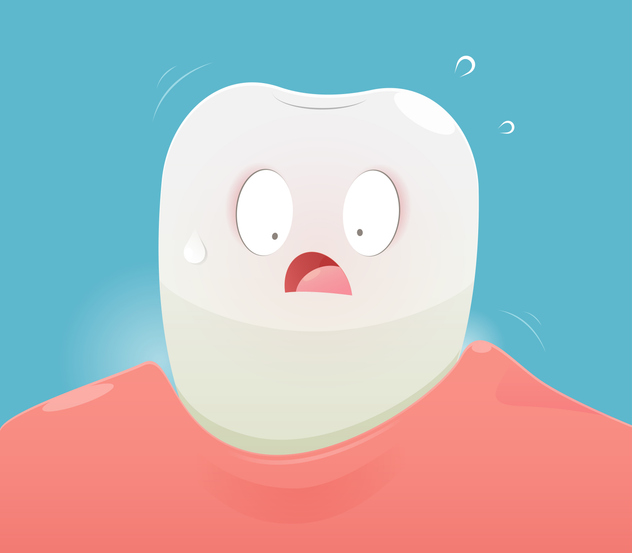When talking about oral health, there are common dental issues that affect many people yet still go unnoticed and unaddressed until significant damage has already been done. Gum recession, also known as gingival recession, is one of them. Gingival recession is a condition in which the gum tissue surrounding the teeth pulls back or wears away, leading to the exposure of more of the tooth or its root. Aside from the aesthetically displeasing nature of the condition, gum recession can also lead to more serious dental problems like tooth sensitivity, tooth decay, and sometimes, even tooth loss. A periodontist in Mission Viejo can help you understand the condition better and help you avoid more problems. A thorough understanding of what causes gum recession is essential for proper prevention and intervention.
Periodontal Disease
Periodontal disease, otherwise called gum disease, is one of the leading causes of gum recession. Gum disease is a bacterial infection that affects the gums, supporting tissues, and bones that hold your teeth in place. It is caused by a sticky film of bacteria called plaque, which builds up on the teeth and gums and forms tartar. In its early stages, called gingivitis, your gums may appear red and swollen and bleed easily. These symptoms should be treated at this stage because if it is left unaddressed, the inflammation may spread to the bones surrounding the gums and make it painful for you to chew.
Furthermore, it can result in tooth mobility or require tooth extraction. Dentists can address periodontal disease in different ways. To find the best solution for you, visit your dentist so they can identify which treatment is best for your case.
Aggressive Brushing and Flossing
Although brushing and flossing are essential to maintaining good oral hygiene, even when brushing, there is the risk of too much of a good thing. Vigorous or aggressive brushing can actually harm your gum and cause gum recession. Similarly, aggressive flossing can also be detrimental to your gum tissue. To avoid this problem, use a soft-bristled toothbrush and apply gentle brushing and flossing techniques.
Poor Oral Hygiene
When people do not practice good oral hygiene, their oral health suffers potentially dire consequences. One such consequence of neglecting oral hygiene is gum recession. When you do not brush and floss as often as you should, plaque is not removed, and it hardens into tartar. Tartar buildup can lead to gum recession. In addition, poor oral hygiene can make you prone to cavities and decay, which weaken the structure of your tooth and contribute to gum recession.
Genetic Disposition
Unfortunately, some people are predisposed to gum recession. In fact, research says that 30% of people have genetic susceptibility to gum disease, which can cause gum recession. So, if you notice any of your parents suffering from receding gums or you have a family history of receding gums, pay a closer look into your oral health. Visit your dentist every six months to ensure that there is no plaque buildup or other causes of concern. Partnering with your dentist may help you prevent the development of the same problems as your parents had.
Hormonal Changes
If you were born female, the estrogen and progesterone hormones play a significant role in your health. Along with the development of sex characteristics, they are also responsible for regulating your menstrual cycle. However, unknown to many, they can also affect your body in other ways. For example, if you are pregnant, increased progesterone levels may lead to pregnancy gingivitis, which, if left untreated, can lead to periodontitis and, eventually, gum recession.
Tobacco Use
Tobacco use is detrimental to oral health. It not only makes your breath smell bad, but also stains your teeth. In addition, the chemicals in tobacco can damage your gum tissue and impair blood flow to your gums. This will make it a challenge for your body to fight off infections and heal. This increases the likelihood of getting periodontal disease, which can lead to gum recession. In addition, chewing tobacco can cause direct damage to the gums, resulting in gum recession.
Oral Piercings
Lip or tongue piercings can cause gum recession because the jewelry can rub against the gum tissue, cause irritation, and wear over time. This constant friction can eventually lead to gum recession and even damage your teeth. So, if you are thinking about getting oral piercings, consider how it can affect your oral health. If you decide on a piercing, visit your dentist regularly for checkups. They can help you monitor the area closely to check for any signs of gum recession.
Aging
As part of the natural aging process, your gums will naturally recede to some extent as you get older. In fact, around 88% of people who are more than 65 years old have some variation of this condition. However, regular visits to your dentist and practicing good oral hygiene can help you slow down the process of gum recession.
Get the Best Gum Treatment Today
Gum recession is a dental condition caused by various factors. Although some of these are beyond your control, some can be prevented or managed through healthy lifestyle choices, proper oral care, and regular visits to the dentist. Remember that your gums deserve the best treatment, so if you are worried about gum recession, contact our clinic today.




